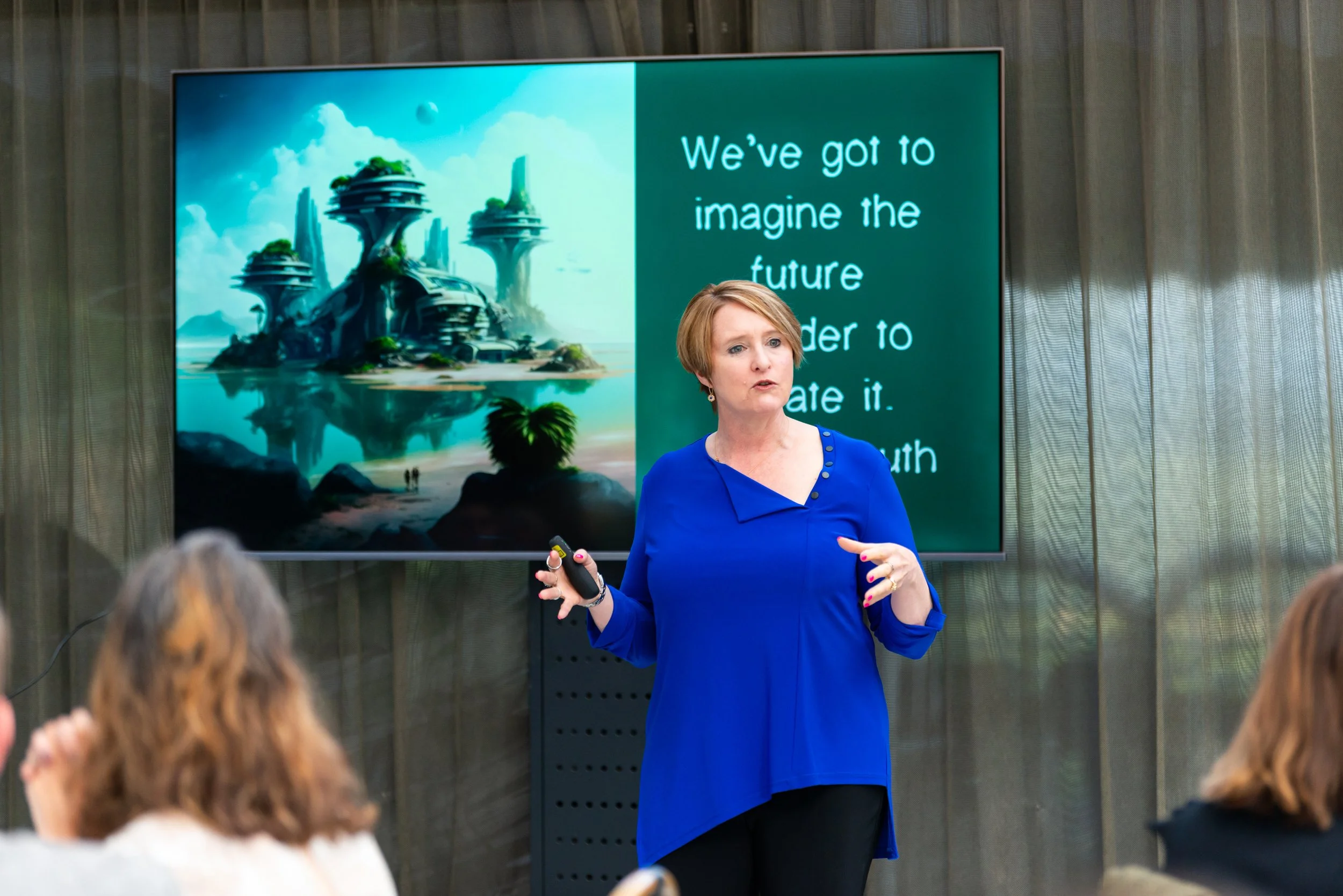Stoics like Epictetus proposed that “It’s not what happens to you, but how you react that matters.”
There is much wisdom in accepting the things we cannot change, and choosing our response.
Until we become aware of our perspective, however, we will be REACTING rather than RESPONDING.
Let’s explore some of our reactions to change:
Watch the brief explanation here.
There are two factors that affect our response to change:
Perspective on the possible outcome
Perspective on our sense of agency
Perspective is a crucial leadership skill.
Perspective on Outcome
If we focus on LOSS, our amygdala can fire up, triggering our STRESS response hormones, cortisol and adrenaline.
If we focus on the GAIN and possibilities of a situation, we can leverage the positive biochemicals of endorphins and dopamine.
Focus on what you can control and this will strengthen your leadership mindset.
Perspective on Agency
If we have a LOW sense of agency, we tend to be reactive, either in resistance (causing a cortisol response) or in diving into action (causing a dopamine response) to address the situation.
If we develop a HIGH sense of agency, we tend to be proactive, either in defending our position (with an adrenaline stress response), or in driving forward to leverage the opportunity, causing a rush of feel-good endorphins.
Our role as leaders is to help ourselves, and others, focus on the GAINS and positives while building a sense of AGENCY and control over what we can.
Leadership effectiveness will come undone without managing your biochemicals
About change fatigue
Biochemicals like cortisol, adrenaline, dopamine and endorphins are energising. They are also draining.
Regardless of where you find yourself on the map of change response, you’ll need to take action to replenish your system to balance the draining effect of these energising biochemicals.
This means:
Focus on PEOPLE activities like recognition and reward to boost serotonin, our feel-good biochemicals that boost our self esteem.
Pay attention to building closer relationships, both personal and professional. This will help boost your oxytocin, the love and intimacy biochemical that helps us feel safe.
Oxytocin and serotonin are feel-good biochemicals that help replenish and boost our system and our best protection against change fatigue.
So schedule in some catch-up time with friends, celebrate successes and recognise contributions, and show appreciation for how far you’ve come this year.
For reflection:
Are you focused on LOSS or GAIN in the change you are leading?
Where can you find more AGENCY or CONTROL in the change you are leading?
How can you help your team members to see the possibilities, the GAINS, in the change?
How can you help team members focus on where they have control and AGENCY in their work?
How can you recognise and appreciate contributions from your team members?
How can you get to know people better?
***
Related Articles:
Love, leadership mindset, and lockdown
A leadership principle I keep re-learning
Boundless Leadership: Now is the perfect time to take on a personal quest
***
About the author, Canberra leadership expert Zoë Routh:
Zoë Routh is one of Australia’s leading experts on people stuff - the stuff that gets in our way of producing results, and the stuff that lights us up. She works with the growers, makers, builders to make people stuff fun and practical.
Zoë is the author of four books: Composure - How centered leaders make the biggest impact, Moments - Leadership when it matters most, Loyalty - Stop unwanted staff turnover, boost engagement, and build lifelong advocates, and People Stuff - Beyond Personalities: An advanced handbook for leadership. People Stuff was awarded Book of the Year 2020 by the Smart WFM Australian Business Book Awards.
Zoë is also the producer of The Zoë Routh Leadership Podcast.


